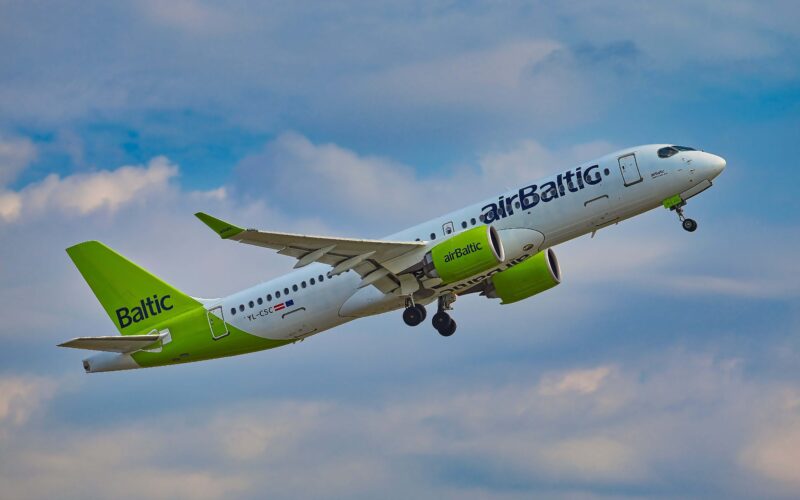airBaltic will wet-lease a portion of its Airbus A220 aircraft to other carriers for summer 2022 after the airline was forced to cease operations in Ukraine and Russia owning to the ongoing war.
According to its full year financial report for 2021, the Latvian airline has already signed contracts for nine A220s to be leased on an ACMI basis to Scandinavian Airline Systems (SAS) and Eurowings. airBaltic is also in the process of signing wet-lease contracts for an additional two aircraft freed up from Ukrainian and Russian destinations.
During the livestream presentation of the airline’s full-year results, chief operating officer at airBaltic, Pauls Calitis, said that “this is our way to improve the airline’s profitability” in response to flight suspensions in Russia and Ukraine.
“Assuming both Russian and Ukrainian markets stay closed for the rest of 2022, the negative impact on the passenger revenue is estimated to be EUR 25 million,” the airline outlined in its financial report.
“In our business plan, we have a slower COVID recovery scenario, which means the passenger traffic rebounding in the Baltic states is on a slower pace than we would like,” said airBaltic chief financial officer Vitolds Jakovlevs.
Jakovlevs added that the carrier could wet-lease some of its aircraft to other carriers for a period of two, three or even four years.
In 2021, the airline reported a net loss of EUR 136 million (US$146 million), a notable increase compared to a net loss of EUR 246 million (US$266 million). The company carried 1.63 million passengers in 2021, which is up 21% compared to 2020.
In addition, airBaltic’s revenue reached EUR 204 million (US$221 million), an increase of 41% compared to 2020.
Despite the market uncertainty, the carrier will continue to add new A220s to its fleet. By 2024, the airline expects to have a total of 50 A220s.
Looking ahead to 2022, the airline expects strong bookings driven by leisure travel in summer 2022. airBaltic anticipates carrying a total of 3.3 million passengers and reaching revenue of EUR 400 million (US$434 million).

